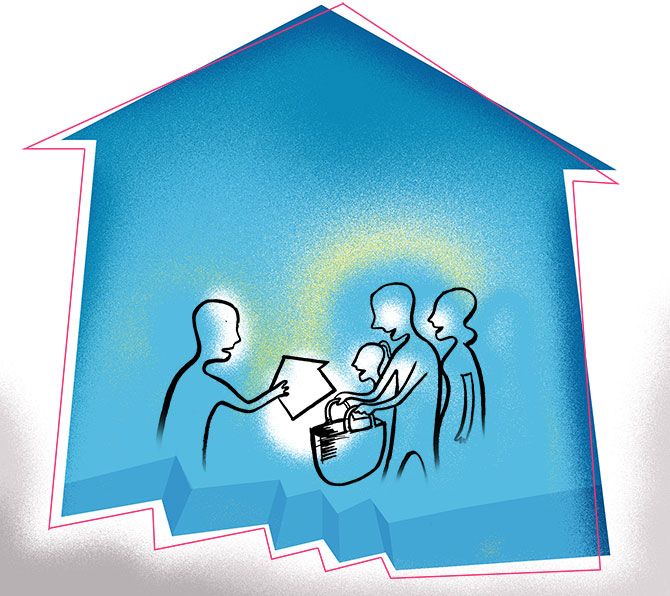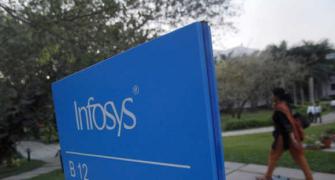Provisions of Rera, subsidy under PMAY and relaxation in PF withdrawal to buy a house will aid affordable housing, points out Harsh Roongta.
Illustration: Dominic Xavier/Rediff.com.

I was in a television debate recently to discuss the depressed status of the residential real estate market.
Despite the demonetisation blow, the impact of the Goods and Services Tax and Real Estate Regulation Act (Rera), the general mood among the panel members was quite upbeat.
Almost everyone felt the worst was over.
Given my known views about how real estate developers have lost the trust of buyers due to uncompensated huge delays and other malpractices, the television anchor turned to me last for a counterview.
The future looks much brighter, I told her, at least for the affordable housing segment, loosely defined as sub-Rs 50 lakh homes.
My view for under-construction properties, which I believe is effectively lending money to the developer, stands modified thanks to Rera.
Through Rera, a politician-bureaucrat-developer nexus can no longer protect developers from having to deliver what they promise to buyers, and from compensating them at a decent interest rate if they delay possession.
Also, it gives an enforceable right to the buyer to cancel the booking and get refund of his money with interest.
In a market where property rates remain stagnant, more buyers will opt for cancellation in the case of inordinate delays.
The good news is that some regulators are already beginning to take action in the most blatant cases of default by developers.
All this will ensure the negativity surrounding under-construction properties will come down.
Then, there is GST. The rate of 12 per cent will lead to a reduction in taxes for new projects because it allows input credit on taxes paid on construction material.
In any case, for affordable homes (say, less than Rs 50 lakh) where the cost of construction is a significant part of the overall cost, GST will not be a negative factor.
The twin positive factors of the loan subsidy of Rs 240,000 under the Pradhan Mantri Awas Yojana (PMAY), as well as the relaxation allowing withdrawal of money in the buyer’s provident fund account, as well as paying future loan equated monthly instalments from future PF contributions, will encourage buying.
There are concerns around these positive factors. Many observers feel the amount allocated in the Union Budget for the subsidy for urban housing will hardly make any impact, as it will be available to only around 60,000 buyers this year.
I think the fear of missing out on the PMAY subsidy will spark a rush to buy once there is more confidence in the market.
Given the need to push unskilled/semi-skilled employment, the expectation is that the government may increase the allocation if the money earmarked for the scheme is fully utilised before the end of the financial year is reasonable.
The withdrawal facility of PF improves the borrowing and repayment ability of middle-class households and the government will move quickly to make sure the bureaucrats in the Employees’ Provident Fund Organisation do not erect barriers to such withdrawals, as they are prone to do.
All in all, as far as the affordable home segment is concerned, I expect a solid stream of demand, sooner rather than later.
Harsh Roongta is a Sebi-registered investment advisor.










